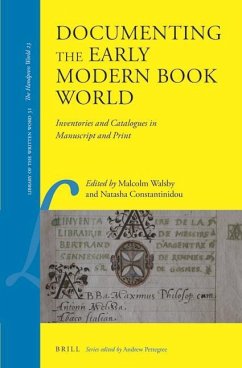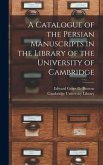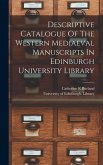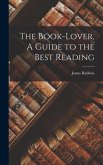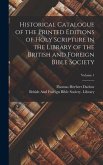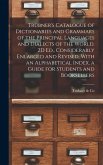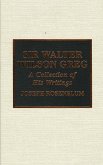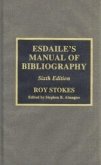Scholars of pre-modern literary culture rely almost exclusively on texts that have survived: mostly those that have reached the comparative safety of modern library collections. But the urge to record, catalogue and advertise the wealth of new publications in the age of print created an additional and valuable resource: book lists. Printers made lists of their available stock; owners catalogued their libraries; religious authorities drew up indexes of banned books; assessors inventoried collections and stock as part of the settlement of estates, or legal proceedings. This volume examines an array of such lists taken from a variety of European countries during the fifteenth, sixteenth and seventeenth centuries. The result is a wide-ranging re-evaluation of one of the most interesting and underused resources for early modern book history.
Contributors include: Jürgen Beyer, Flavia Bruni, Gina Dahl, Cristina Dondi, Shanti Graheli, Neil Harris, Justyna Kilianczyk-Zieba, Alexander Marr, Kasper van Ommen, Andrea Ottone, Leigh T.I. Penman, Benito Rial Costas, John Sibbald, Kevin M. Stevens and Malcolm Walsby.
Contributors include: Jürgen Beyer, Flavia Bruni, Gina Dahl, Cristina Dondi, Shanti Graheli, Neil Harris, Justyna Kilianczyk-Zieba, Alexander Marr, Kasper van Ommen, Andrea Ottone, Leigh T.I. Penman, Benito Rial Costas, John Sibbald, Kevin M. Stevens and Malcolm Walsby.
A "teeming exploration of early modern book inventories [...] both precise and expansive".
Adam Smyth, University of Oxford. In: Times Literary Supplement , August 15, 2014 (p. 27).
"This is an excellent collection - geographically varied, and yet each piece absolutely precise".
William Poole, University of Oxford. In: Renaissance Quarterly , Vol. 67, No. 4 (Winter 2014), pp. 1432-1433.
" Documenting the Early Modern Book World explores how early modern book lists can be used for scholarship. Malcolm Walsby, 'Book Lists and Their Meaning' (1-28), provides an excellent overview of these resources and how they might be used for future research."
Bryan Brazeau, New York University. In: The Year's Work in Modern Language Studies , Vol. 75 (2013), p. 311.
"This excellent essay collection presents a vast array of resources and methodologies for the study of booklists. Strikingly, it also exhibits the stimulating human stories that emerge from these ostensibly sober documents. Its protagonists include bigamists on the run, illicit eel importers, the book thief Suffridus Sistinus, the sly debt collector Isaac Vossius, and Paul Felgenhauer, who believed he could interpret scripture infallibly (although even he admitted that his prophecy of a millennium of peace for Bohemia, to start in 1623, needed rethinking) ... This is a deeply researched and carefully edited volume, and several of the lists under discussion are usefully reproduced as appendices to articles. Documenting the Early Modern Book World leaves no doubt about the surprising variety of uses to which booklists can be put, both by their original compilers and by scholars today. It will become an essential point of reference for historians of European book collections."
Daniel Starza Smith, University of Oxford. In: Library & Information History , Vol. 30, No. 3 (August 2014), pp. 222-224.
"The articles, which, in their clarity and thoroughness are uniformly excellent, show the relevance of book catalogues as primary source material for most aspects of historical bibliography [...] In addition to the quality of its intellectual content, the book contains much primary source material which is well presented."
Brandon High, King's College London. In: CILIP Rare Books and Special Collections Newsletter , Issue 99 (March 2015), pp. 14-15.
Adam Smyth, University of Oxford. In: Times Literary Supplement , August 15, 2014 (p. 27).
"This is an excellent collection - geographically varied, and yet each piece absolutely precise".
William Poole, University of Oxford. In: Renaissance Quarterly , Vol. 67, No. 4 (Winter 2014), pp. 1432-1433.
" Documenting the Early Modern Book World explores how early modern book lists can be used for scholarship. Malcolm Walsby, 'Book Lists and Their Meaning' (1-28), provides an excellent overview of these resources and how they might be used for future research."
Bryan Brazeau, New York University. In: The Year's Work in Modern Language Studies , Vol. 75 (2013), p. 311.
"This excellent essay collection presents a vast array of resources and methodologies for the study of booklists. Strikingly, it also exhibits the stimulating human stories that emerge from these ostensibly sober documents. Its protagonists include bigamists on the run, illicit eel importers, the book thief Suffridus Sistinus, the sly debt collector Isaac Vossius, and Paul Felgenhauer, who believed he could interpret scripture infallibly (although even he admitted that his prophecy of a millennium of peace for Bohemia, to start in 1623, needed rethinking) ... This is a deeply researched and carefully edited volume, and several of the lists under discussion are usefully reproduced as appendices to articles. Documenting the Early Modern Book World leaves no doubt about the surprising variety of uses to which booklists can be put, both by their original compilers and by scholars today. It will become an essential point of reference for historians of European book collections."
Daniel Starza Smith, University of Oxford. In: Library & Information History , Vol. 30, No. 3 (August 2014), pp. 222-224.
"The articles, which, in their clarity and thoroughness are uniformly excellent, show the relevance of book catalogues as primary source material for most aspects of historical bibliography [...] In addition to the quality of its intellectual content, the book contains much primary source material which is well presented."
Brandon High, King's College London. In: CILIP Rare Books and Special Collections Newsletter , Issue 99 (March 2015), pp. 14-15.

